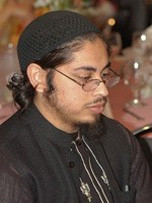Killed Al Qaeda blogger lived in E.M.
Community News
An Al Qaeda propagandist and self-proclaimed American traitor who was killed by a U.S. drone strike in Yemen on Sept. 30 was a former East Meadow resident who graduated from W.T. Clarke High School in 2003.
Samir Khan, 25, was an American jihadist blogger who moved to Yemen in 2009 to help oversee the production of Al Qaeda in the Arabian Peninsula’s Inspire magazine, according to the Federal Bureau of Investigation.
The East Meadow Unified School District declined to comment on Khan, but residents were surprised to hear that an Al Qaeda member once lived in their town. “Oh my gosh, one of our own?” said Rosemarie Kerns, who added that it was scary to hear that Khan grew up nearby.
“I never knew him,” added Robert Spear, “but we as a nation are better off with him being dead.”
The president of the Long Island Muslim Alliance, Nayyar Imam, said he did not know Kahn, but was shocked when he heard the news. “It’s very sad that an American wanted to kill our own citizens,” Imam said.
Though he recognized that Khan’s actions reflect poorly on Muslims, Imam said, “You cannot just blame everyone because of one person’s actions.” He added that if an Irishman had acted in a similar manner to Khan, Americans would not look poorly on all Irish Americans, and it should be the same for Muslims.
American Muslims have never acted as traitors before, said Imam, “and I hope it will not continue. We should all act responsibly.”
A spokesman for Khan’s family, Jibril Hough, told CNN that Khan’s parents are embarrassed and frustrated. Hough confirmed that Khan “definitely was a terrorist supporter,” but said it was never proven that Khan was a terrorist.
The second issue of the magazine Inspire, at 74 pages, is “as disturbing and alarming as the first edition,” said Northeast Intelligence Network director Douglas Hagmann. “The magazine urges all Muslims to wage personal jihad against infidels in the U.S., Canada and all non-Muslim countries.”
In an article Khan wrote, titled “I am Proud to be a Traitor to America,” he explained his thinking. It begins, “After my faith took a 180-degree turn, I knew I could no longer reside in America as a compliant citizen. My beliefs had turned me into a rebel of Washington’s imperialism.”
He had a strong desire to spread Islam, Khan wrote, but an undercover FBI agent began spying on him when he lived in North Carolina and he did not want to risk arrest, so he fled to Yemen. “I was quite open about my beliefs online and it didn’t take a rocket scientist to figure out that I was al Qaeda to the core,” he wrote.
Khan elaborated on his desire to spread Islam throughout the world, pledging that he would risk death to impart his beliefs to others.
According to the U.S. State Department, “U.S. and Yemen government officials confirmed that dual U.S.-Yemeni citizen Anwar al-Awlaki, the external operations leader of al-Qaida in the Arabian Peninsula was [also] killed” in the drone attack that killed Khan.
CNN reported that al-Awlaki was born in Las Cruces, N.M., and lived in the U.S. until he was 7. He returned to attend college in 1991 and remained until 2002.
Yemeni intelligence may have shared information with the U.S. that led to al-Awlaki, CNN reported. After two weeks of surveillance, he was killed while traveling in a Toyota pickup truck.
On Sept. 22, days before the airstrike that killed Khan and al-Awlaki, the secretary of homeland security, Janet Napolitano, addressed the U.S. Senate, saying, “Homegrown terrorists represent a new and changing facet of the terrorist threat. To be clear, by ‘homegrown,’ I mean terrorist operatives who are U.S. persons and who were radicalized in the United States and learned terrorist tactics either here or in training camps in places such as the federally administered tribal areas of Pakistan.” Napolitano said that al-Awlaki may have been using the Internet to recruit homegrown extremists.
According to CNN, the FBI released a statement to local law enforcement partners on Sept. 30 that concluded that the deaths of al-Awlaki and Khan “could provide motivation for Homeland attacks by homegrown violent extremists.” Officials say, however, that there is no information that indicates that anyone is planning an attack in the U.S.

 59.0°,
Mostly Cloudy
59.0°,
Mostly Cloudy 







